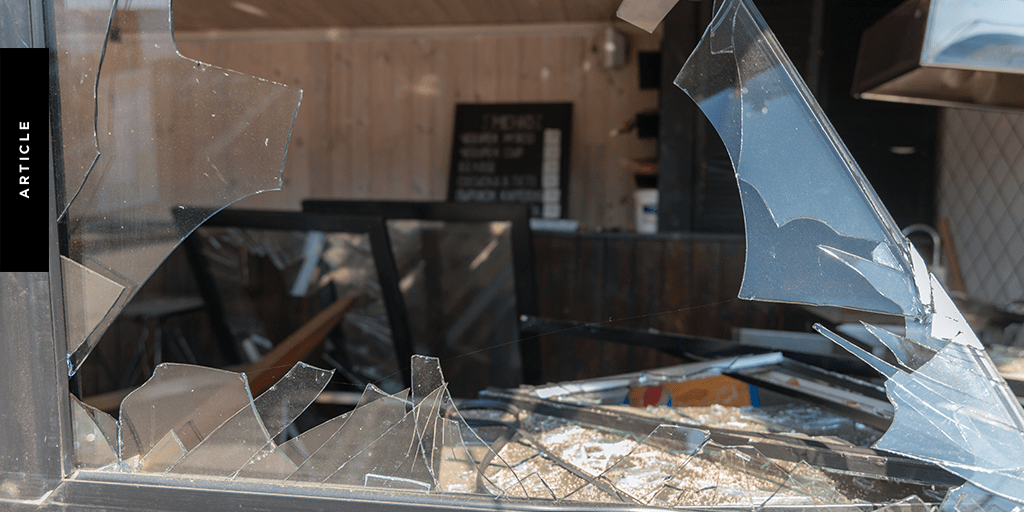When it comes to protecting commercial property, terrorism insurance might not be the first thing on your mind, but it’s an important aspect to consider.
The Australian Terrorism Insurance Act of 2003 mandates coverage for “declared terrorist incidents”, ensuring businesses are protected from financial losses following an attack. This law addresses global terrorism risks, offering another layer of security for businesses across the country.
You might not think this risk applies to you, perhaps due to your location, but terrorism can happen physically and digitally. The nefarious actors may not target your business directly, but your operations could be caught up in an attack, if the electricity grid or drinking water is cyber attacked.
So, without terrorism insurance, your commercial property could be vulnerable to significant costs if terrorism occurs.

The Terrorism Insurance Act of 2003
The Terrorism Insurance Act of 2003 was introduced to handle the financial risks of terrorist incidents.
If the Federal Government officially declares an event as terrorism, insurers must cover the related claims. However, the government’s terrorism funding pool only comes into play after your insurer has covered their share, essentially providing extra support once deductibles or excesses have been met.

The role of the ARPC fund
Here’s how the government helps. It established the Australian Reinsurance Pool Corporation (ARPC), a $14 billion fund designed to help insurers cover claims from terrorism-related incidents and cyclone events. This fund means that even in the face of large-scale damages, insurers can continue to pay out claims without delay. Effectively, the act overrides terrorism exclusion clauses in eligible insurance contracts.
For business owners, this fund’s existence offers significant peace of mind and financial certainty. If you’re curious, the ARPC has yet to make a payout, but it’s ready – as of the end of January 2022, it had about $14B in its coffers.
What it Costs Businesses
You might be wondering, ‘How much is this going to cost me?’. Well, it can vary. For example, Kim, a commercial property owner, pays a terrorism levy of $900 as part of their total $14,700 insurance premium.
That sounds like an additional cost, but when you break it down, it’s a small price to pay for protecting your property from potential threats. The risk level determines the amount charged. Properties in high-risk areas (Tier A) pay 16% of their premiums as a terrorism levy, while lower-risk areas (Tier B) fork out a 5.3% levy.
Controversy & Concerns
The system has its detractors, though. Many business owners, particularly those in regional areas, argue that the terrorism levy is unfairly applied. They say businesses in low-risk areas should not have to pay the same rates as those in cities, where the risk of terrorism is higher.
Another issue is that terrorism insurance is compulsory, even if a business owner believes their property has a minimal risk. For some, this feels like an unnecessary cost, especially during the cost-of-living crisis.

Regulatory Oversight and Future Outlook
The good news is that the government regularly reviews the Terrorism Insurance Act, and there may be changes on the horizon. Australia’s national terrorism threat level has increased from ‘possible’ to ‘probable’ since August. This means that ASIO assesses there is a greater than 50% chance of an onshore attack or attack planning in the next 12 months.
Therefore, there’s a chance that premiums could go up for some businesses, particularly those in high-risk areas.
On the flip side, there’s also the potential for more tailored premium structures, which could lower costs for businesses in low-risk areas. Keep an eye on these reviews and stay informed about your coverage options.
Implications for Commercial Property Owners
So, is terrorism insurance necessary for your business? While the risk of a terrorist attack may seem low from your perspective, the financial impact of such an event could be gutting. Having terrorism insurance as part of your commercial property coverage ensures you’re protected, no matter where your business is located.
Ensure you regularly review your insurance policies, particularly the breakdown of your premiums, to understand how much you’re paying for terrorism coverage. We can help you do that and check you’re appropriately covered.

